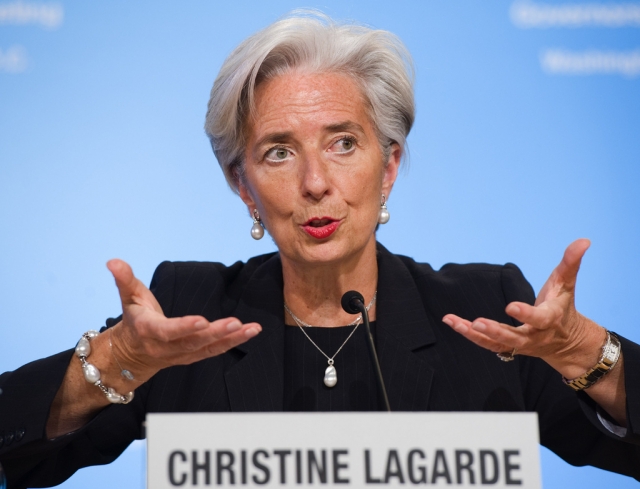The Managing Director of the International Monetary Fund (IMF), Christine Lagarde, arrived Abuja on Monday to begin a four-day visit to Nigeria. The visit is part of a two-nation West African region tour to engage policy makers and top officials of Nigeria and Cameroon on economic developments affecting both countries and the West African sub-region.
Prior to Ms Lagarde’s arrival, the IMF had explained that the visit would underline the Fund’s strong relationship with its African member countries.
While in Abuja, Ms. Lagarde would meet with President Muhammadu Buhari, the Minister of Finance, Kemi Adeosun, and Central Bank, CBN governor, Godwin Emefiele, along with members of the National Assembly, top business leaders, and civil society representatives.
A statement issued by the fund said the discussions with President Buhari would focus on various economic issues, particularly the impact of the declining crude oil prices on the country’s economy.
The IMF has been one of the international finance organisations that have been critical of some policies by the Buhari administration, particularly the CBN’s monetary policy on restriction of access to foreign exchange to strengthen the Naira and stabilize the Nigerian economy.
The CBN had removed 41 items from accessing its foreign exchange window on grounds that they could easily be produced in Nigeria rather than spend the country’s reserves on importing them.














